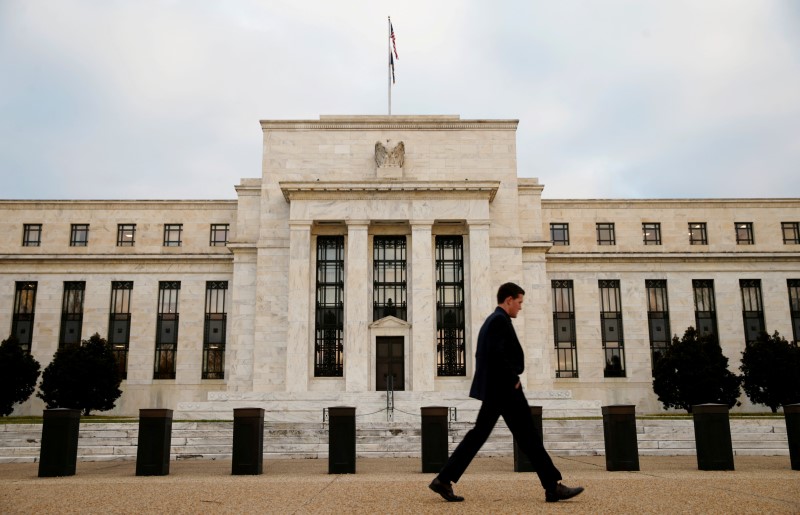By Lauren Tara LaCapra
NEW YORK (Reuters) - The stress tests created for banks by U.S. regulators after the 2008 financial crisis may prove their worth this week, providing a timely message on banks' hardiness in the midst of turbulence over last week's vote by Britain to leave the European Union.
The Federal Reserve will release the second set of results from stress tests it has conducted annually on large banks since 2009 on Wednesday. The tests look at how strong banks would be in the event of an unforeseen crisis, with economies in freefall, stock markets dropping precipitously and market counterparties at risk of failure.
And while the stresses that the Fed is testing for in this case are imagined, analysts say the results should be reassuring to investors worried about banks' exposure to Brexit, an outcome that took the world and markets by surprise.
"This is a real-world test that can help demonstrate the greater resiliency of banks' balance sheets and the benefits of de-risking that, while having hurt revenue this decade, should help incrementally in times such as this and show the relative strength of U.S. banks," said CLSA bank analyst Mike Mayo.
Investors may take some comfort in the fact that the Fed's stress test scenarios are much tougher than anything the banks have so far faced as a result of Brexit.
In the standardized stress test, the results of which were released last week, the Fed's severely adverse scenario modelled for the stock market losing half its value and unemployment surging to 10 percent, among other factors. The results released on Wednesday will have stressful scenarios tailored to individual banks' business models and will also judge the quality of their planning processes.
Mayo said the stress test should show that U.S. banks will be able to keep dividends stable and even increase dividends while dealing with the fallout of the UK referendum.
LIKELY NOT A 'LEHMAN MOMENT'
This year's results are coming at a time when the presumptive Republican presidential nominee, Donald Trump, and some lawmakers, are angling to dismantle the financial reform regulation that formalised stress tests and other rules to make the system safer. As a result of those Dodd-Frank reforms, U.S. banks are arguably better suited to handle market shocks like those caused by the surprise Brexit vote.
The banks have begun putting some plans into place to prepare for the UK leaving the EU, but making moves too soon could be a costly mistake.
"This will be a long, drawn-out process that will take several potentially nuanced turns," RBC bank analysts led by Gerard Cassidy said in a report detailing the impact of Brexit on big banks.
However, banks are already betting that the "financial passport" that allows them to lend, trade and execute deals effortlessly from the U.K. through continental Europe will be no more.
Senior bank executives are already looking at contingency plans that could relocate staff and operations to places like Frankfurt, Dublin or Amsterdam.
Also, banks are almost sure to face a longer period of extremely low interest rates and further headwinds on loan growth globally — which is not good for profits, analysts said.
Precisely how that will trickle down to profits is still yet to be seen. Analysts were reviewing their earnings estimates, preparing to issue new reports this week.
But by and large, they urged investors to remain calm and, in some cases, buy bank stocks on share price declines that don't line up with reality. On Friday, the KBW Bank index (BKX) fell 7.3 percent.

"As has been the case at times of global shocks since the fall of Lehman Brothers in September 2008, some have asked whether Brexit is another 'Lehman moment,'" market analysts at Goldman Sachs (NYSE:GS) said. "We do not believe so."